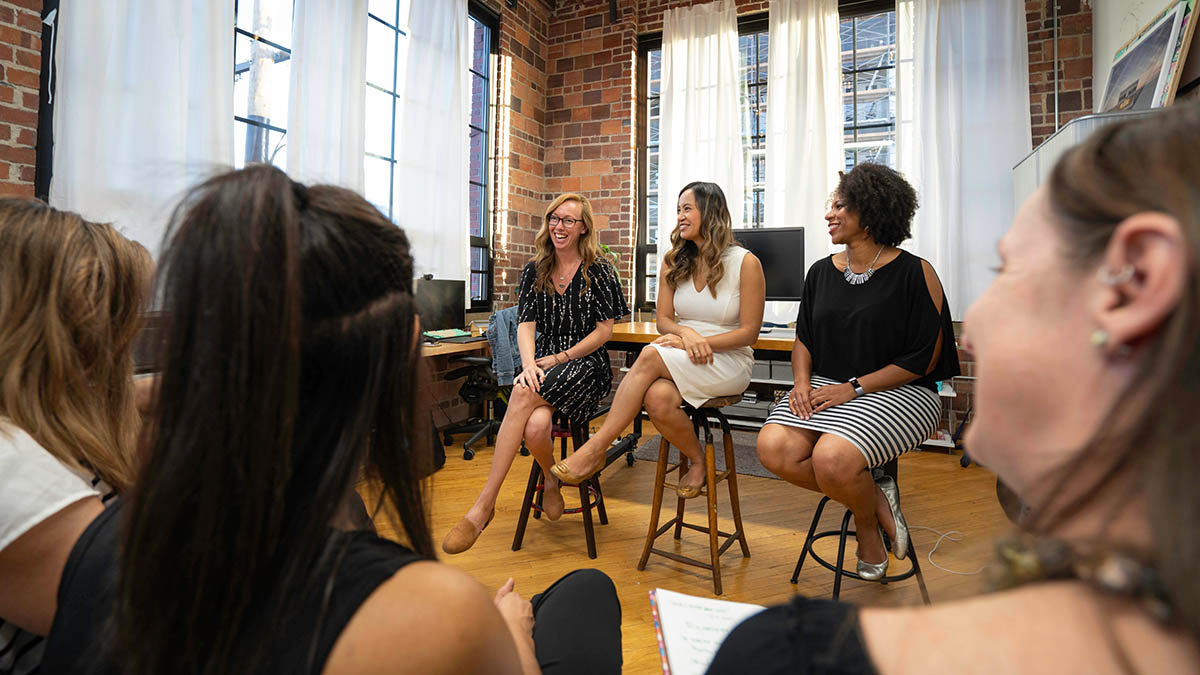Smart creative people have lots of options when it comes to marketing themselves and finding ways of making money, but using expert strategy is a neat way of combining both. Becoming the go-to person about a specific topic or a niche area of your practice can help you to build your business and potentially generate income.
Step 1: Find Your Expertise
This is the tricky bit. What are you an expert in? You need to find something that you’re confident about, an area of your creative practice that you’re very knowledgeable about, hopefully with some qualifications and real-life experience to back you up. Remember, you don’t need to be an expert on a wide topic – in fact, the more specialised and specific, the better. You might be the most knowledgeable encaustic artist with a speciality in flowers in Auckland – and that’s more than enough!
Step 2: Consolidate and/or Update Your Knowledge
You definitely need to be knowledgeable in your chosen field, but you don’t necessarily need qualifications (although it helps). Are you as up to date and knowledgeable as you could be? Make sure your training is current and still valid and acceptable to your industry, and make sure you stay up to date.
Step 3: Embrace Imposter Syndrome
At this stage, you might be worrying that you’re not really all that clever and that your expertise is not enough. Remember, imposter syndrome is normal and your expert status is not absolute — it’s relative. You just need to be better at your ‘thing’ than most of the other people you have contact with (at least at first). An expert is someone who has enough knowledge to be able to help other people and do so with conviction and confidence.
Step 4: Develop Your Speaking and Writing Skills
Once you’re ready, the best way to share your expertise is to write, speak or teach. This might mean developing your writing and speaking skills. If you’re already an adept writer, and compelling speaker, well done you! If not, don’t worry- you can learn – if you don’t want to explore either option, then read on for more ways of sharing your expertise.
Step 5: Update LinkedIn
LinkedIn is the best way to connect with a wide range of people as an expert. It’s where the business world goes to connect and network. If your profile is lacking, now is the time to make the change. It doesn’t matter if you don’t like LinkedIn – if the people you want to connect with are there, and it’s a trusted source of finding experts, then you need to be there too with a kick-ass profile. You can find out more about how to create that magic here.
Step 6: Start Publishing (Yourself)
If your writing is up to scratch, and your LinkedIn page is awesome, it’s time to start publishing. You can use the Articles function on LinkedIn to share your words with the world. We recommend writing your piece as a separate Word file first, checking and editing it as best you can and then uploading once it’s free of mistakes. You can also publish a blog on your own website, and even use other social media to share your writing.
Step 7: Start Publishing (With Others)
If you know of other websites that publish expertise writing like yours, contact and ask if you can contribute. You can also Google search the top blogs in your industry (often you can find lists already online) and pitch them ideas for a guest post. Don’t apply the scattered approach, however – do your research and make sure to send a specific pitch to each blog, rather than a general idea. Give them a couple of options, but offer them fresh new ideas that are relevant to topics they’ve covered before.
Step 8: Go to Events and Conferences (and maybe speak?)
Do your research and find the best places to meet people who might be interested in your area of expertise. Conferences, meet-ups and networking events are ideal. Be strategic about which ones you choose, and think about who would be there and whether or not you’ll just be another face in the crowd or the one person who stands out. For example, if you’re a filmmaker specialising in the health industry, attend health conferences not film conferences. And if you’re interested in speaking at an event, make sure you attend first to see if it’s the right one for you.
Step 9: Speaking and Teaching
If speaking in public is terrifying for you, don’t do it. You’ll ruin any chance you have of being perceived as an expert if you’re sweating and stuttering your way through a presentation. If you’re good at it, however, giving speeches or participating in seminars or panels is a great way to present yourself as an authority. Find conferences and events in your field and sign up to their mailing list – they very often have email and social media call outs for potential speakers.
And if you’re ready, try summarising what you have learned by teaching what you know to others. Start by sharing your ideas informally with friends or colleagues, and then consider your local community college or reach out to your former training institution to see if they’d be interested in hearing from an expert.
Step 10: Promote Your Expertise
Start promoting by adding your expertise, experiences, speaking skills and writing abilities to your LinkedIn profile and to your website. If you don’t have a website, build one!
- Utilise SEO and social media to help promote your abilities – use words like ‘expert’ and ‘expertise’ in your website’s titles and content, as journalists often use Google to search on the topic they are researching.
- If the world of digital marketing is totally foreign to you, Facebook Blueprint and Google Garage both offer free online learning programs to help you build your knowledge and put your marketing ideas into practice.
- Websites like HARO (Help a Reporter Out) and Source Bottle are examples of the free tools that help you get noticed. Journalists and other members of the media constantly need sources for specific articles they’re writing, which could be the perfect opportunity for you!
- Podcasts and radio are also a fantastic way of sharing your expertise. Podcasts are typically a niche driven industry, making them an ideal way to get your message across to a group of people very interested in hearing from an expert like you, from your particular field. This can also be less scary than public speaking!
- And why not start your own webinar to help spread your expertise and teach others?
Final Tip: Start Local
It’s okay to start small and local. Here are some ideas :
- Write for your local newspaper, perhaps even contributing a column. You may not be paid, but it’s good for spreading the word about your expertise.
- Reach out to organisers of local events and offer yourself as an expert for a panel.
- Speak at your local colleges, universities or schools. Classes always need real-world speakers.
- Volunteer at your Chamber of Commerce or similar to give a presentation on your topic.
- Organise events yourself and invite industry leaders. Afterwards, write up a summary of the points the panel discussed and pitch it to a blog.
Good luck, expert!
Photo by Priscilla du Preez team on Unsplash





0 Comments